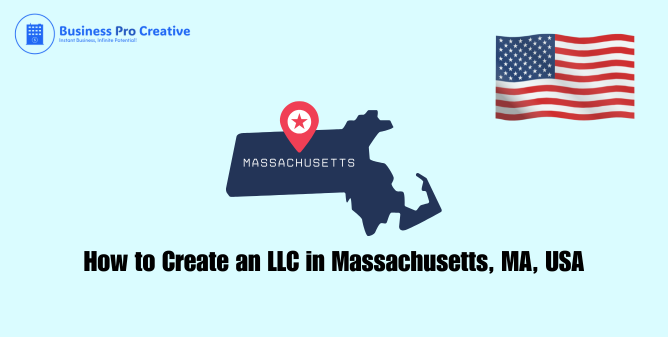
To form an LLC in Massachusetts, you’ll need to follow several key steps. Start by choosing a unique business name and appointing a registered agent. Then, file a Certificate of Organization with the Secretary of the Commonwealth, paying a $500 fee. Create an operating agreement and obtain an EIN from the IRS. Don’t forget to register for state taxes if required. You’ll also need to file annual reports and maintain compliance with state regulations. While the process offers benefits like personal asset protection and tax flexibility, it’s essential to weigh the pros and cons. Exploring further can help you navigate the complexities of establishing your LLC in the Bay State.
What Are the Steps to Form an LLC in Massachusetts?
To form an LLC in Massachusetts, you’ll need to follow a series of specific steps.
First, choose a unique business name and check its availability.
Then, appoint a registered agent and file your Certificate of Organization with the Secretary of the Commonwealth.
You’ll also need to create an operating agreement, obtain an EIN from the IRS, and register for state taxes if necessary.
Click here to form an LLC in Massachusetts in 10 minutes.
What Are the Costs and Fees for Registering an LLC in Massachusetts?
After understanding the steps to form an LLC in Massachusetts, it’s important to contemplate the associated costs and fees.
You’ll need to pay a $500 filing fee for your Certificate of Organization. The state also requires an annual report, which costs $500.
Additional expenses may include hiring a registered agent, obtaining licenses or permits, and seeking professional legal or accounting advice.
What Are the Pros and Cons of Forming an LLC in Massachusetts?
Entrepreneurs considering business structures in Massachusetts should weigh the pros and cons of forming an LLC.
Pros include personal asset protection, tax flexibility, and less paperwork than corporations. You’ll also enjoy credibility and easier access to funding.
However, cons involve higher costs than sole proprietorships, potential self-employment taxes, and the need for meticulous record-keeping to maintain the LLC’s status and benefits.
What Are the Compliance and Ongoing Requirements for an LLC in Massachusetts?
Once you’ve established your LLC in Massachusetts, you’ll need to stay on top of several ongoing compliance requirements.
These include filing annual reports, maintaining a registered agent, keeping accurate financial records, and paying taxes on time.
You’ll also need to update your Certificate of Organization if there are any significant changes to your LLC’s structure or operations.
Staying compliant guarantees your LLC remains in good standing with the state.
What Are the Best Cities for Business in Massachusetts?
While maintaining compliance is essential for your Massachusetts LLC, choosing the right location can greatly impact your business’s success. Consider these top cities for business in Massachusetts:
| City | Key Industries | Notable Features |
|---|---|---|
| Boston | Tech, Finance | Innovation hub |
| Cambridge | Biotech, Education | Home to Harvard |
| Worcester | Healthcare, Manufacturing | Affordable real estate |
These cities in Massachusetts offer diverse opportunities, access to talent, and supportive business ecosystems. Research each location’s specific advantages to find the best fit for your LLC.
What Is the Economic and Legal Environment in Massachusetts?
In Massachusetts, you’ll find a robust economic environment and a complex legal landscape for businesses.
The state boasts a diverse economy, with thriving sectors in technology, healthcare, and education. You’ll face strict regulations, particularly in areas like employment and environmental protection.
Massachusetts offers various tax incentives for businesses, but also imposes higher-than-average corporate tax rates. Steering through this environment requires careful planning and expert guidance.
What Networking and Business Support Resources Are Available in Massachusetts?
As you navigate Massachusetts’ complex business landscape, you’ll find a wealth of networking and support resources to help you succeed.
The Massachusetts Small Business Development Center offers free consulting and training.
Join the Greater Boston Chamber of Commerce for networking events and advocacy.
Leverage MassChallenge, a startup accelerator providing mentorship and funding opportunities.
Don’t forget local co-working spaces for collaboration and community building.
Looking to expand your business beyond Massachusetts? Check below for nearby states in Massachusetts.
- How to Form an LLC in Connecticut
- How to Form an LLC in Rhode Island
- How to Form an LLC in New Hampshire
